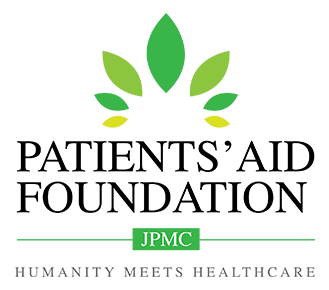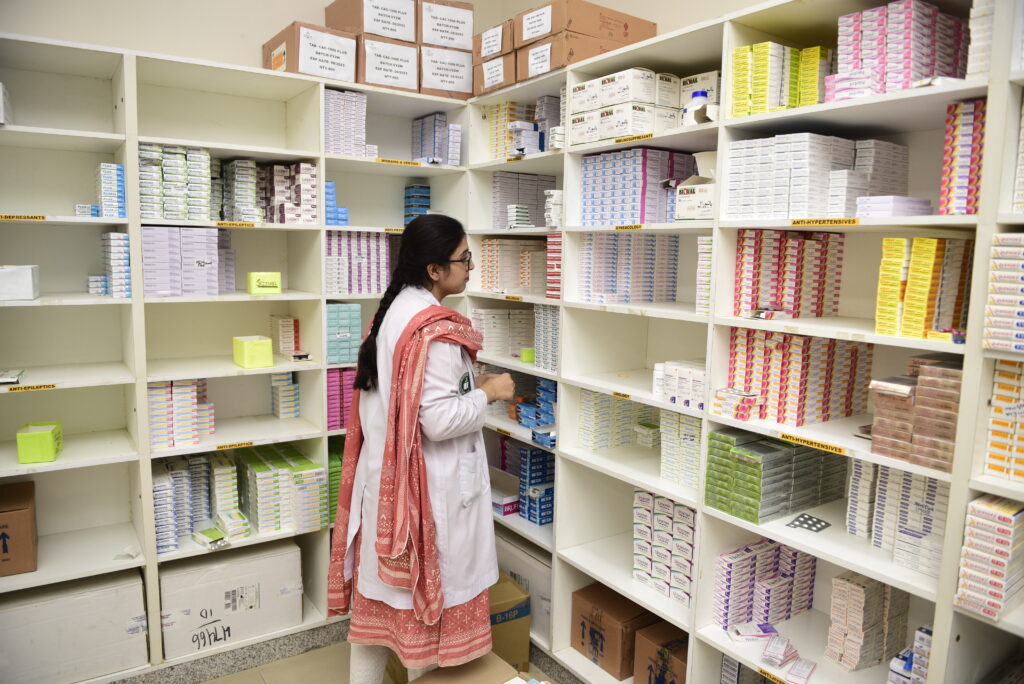Better health habits for 2025
Every year, countless lives are lost or severely impacted by preventable illnesses, illnesses that creep in without warning, from respiratory infections and the flu to the dangers of dengue and viral fevers. As we step into 2025, it’s crucial to ask: Are we prepared to protect ourselves and our loved ones?
This new year presents the perfect opportunity to reflect on our health and adopt habits that can lead to lasting improvements. In Pakistan, where access to quality and affordable healthcare is often limited, the burden of both seasonal and chronic illnesses is heavier than ever. With the high cost of treatment being a major barrier for many, the need for preventive care has never been more urgent.
At Patients’ Aid JPMC Karachi, we are committed to supporting individuals by not only providing free medicines and treatments but also offering valuable guidance on maintaining good health. As healthcare costs continue to rise, it’s vital to focus on preventive care and healthy habits that can reduce the risk of illness and improve long term health outcomes.
The Impact of Inflation
Inflation significantly limits access to healthcare, especially in managing and treating illnesses. As the costs of medical services, insurance premiums, and prescription drugs rise, many individuals struggle to afford necessary care. For those with chronic conditions like diabetes, hypertension, or heart disease, these escalating costs may lead to delayed or missed treatments, worsening their health and increasing the risk of complications. Similarly, individuals suffering from acute illnesses, such as infections or seasonal diseases like the flu, may avoid seeking medical attention due to high out-of-pocket expenses. This financial barrier disproportionately affects low-income and uninsured populations, exacerbating health inequities. Consequently, both chronic and acute conditions become harder to manage, burdening healthcare systems and contributing to worse long-term health outcomes.
In countries like Pakistan, where many already face limited access to healthcare and medications, effectively managing healthcare expenses can be a significant burden. If you’re looking to help, consider supporting Patients’ Aid to provide essential medical care for those in need.
New year, New health goals
By adopting healthy habits, we can strengthen our immune systems and prevent unnecessary illness, ensuring we’re better equipped to fight seasonal infections. Now is the perfect time to make our health a priority. Instead of overwhelming ourselves with drastic resolutions that are hard to maintain, we can focus on small, achievable goals that contribute to our overall well-being.
Let’s take a look at a few habits or concerns we should consider in 2025 to ensure we stay on track with our health.
- Preventive screenings: Preventive screenings can make all the difference in catching diseases early. At JPMC, regular screenings for diabetes, cholesterol levels, and blood pressure are essential and should be considered a basic requirement for everyone. For women, screenings like mammograms are crucial for the early detection of breast cancer, and these services are provided at JPMC. These tests are not only important but can be life saving. At JPMC, we offer affordable options to ensure that no one is left behind. Click here to donate now to the Patient’s Aid Fund and provide free cancer treatment at JPMC.
- Track your health metrics regularly: Our bodies communicate subtle signs when something is off. Keeping track of key health indicators such as weight, blood pressure, cholesterol, and blood sugar can provide early warnings of developing conditions. Regularly monitoring these factors allows you to catch changes in your health early and make adjustments before problems worsen. Always try staying informed about your health status, and seek guidance from healthcare professionals when needed.
- Early intervention: Don’t wait for symptoms to worsen before seeking help. If you notice anything unusual, whether it’s persistent fatigue, unexplained weight loss, or changes in your body, make it a habit to seek medical advice promptly. Early intervention prevents minor issues from turning into serious conditions. Doctors and specialists at JPMC are always available to provide guidance on treatment options, and with focus on free and quality healthcare, early treatment is accessible to all.
- Healthy diet: A balanced, nutrient rich diet plays a vital role in maintaining overall health and preventing chronic conditions. Eating whole, unprocessed foods, rich in vegetables, fruits, lean proteins, and healthy fats, can boost immunity and combat inflammation. Incorporating more anti-inflammatory foods like turmeric, ginger, and leafy greens can also help your body fight off disease and stay strong through seasonal changes.
- Quit harmful habits: This year, make a goal to quit behind habits that harm your health. Whether it’s smoking, or unhealthy eating, breaking free from these behaviors can have a profound impact on your physical well-being. Quitting smoking, for example, dramatically reduces your risk of lung cancer, respiratory issues, and cardiovascular diseases. So make sure to seek support if needed, or counseling services to address unhealthy habits.
- Prioritize your Mental Health: Mental health is closely tied to physical health. Chronic stress, anxiety, and depression can weaken the immune system, increasing vulnerability to illness. In 2025, make mental well-being a priority by incorporating stress management, mindfulness, and regular physical activity into your routine to enhance both emotional resilience and overall health. At Jinnah Postgraduate Medical Centre (JPMC), comprehensive mental health services are available, including specialized care in the Psychiatric Ward for severe conditions. Alongside inpatient treatment, JPMC offers outpatient counseling, therapy, and stress management programs to support both short-term crises and long-term mental health, ensuring a holistic approach to your well-being.
- Blood pressure monitoring: Last but not the least, hypertension, or high blood pressure, is a silent condition that can lead to severe complications like stroke, kidney failure, or heart disease. Ensure to measure your blood pressure regularly, whether at home or office. If you have high blood pressure, simple lifestyle changes such as reducing salt intake, regular exercise, and stress management can help you manage it effectively.
Wrapping up
While focusing on your own health, remember that your good deeds can have a profound impact on others. By supporting noble initiatives like Patients’ Aid’s “Roz ka Saqda”, you’re not only improving your own life but also helping provide healthcare to those in need. Your donations and support make a difference, funding treatments, screenings, and resources for unprivileged individuals in our community. As we know, acts of kindness often come back to you in unexpected ways, creating a ripple effect of positivity and change.
Let’s make a collective commitment to prioritize our health and our community. The small changes you make today will have a lasting impact on your well-being tomorrow. And by supporting Patients’ Aid, you’ll be contributing to a healthier, stronger society.
At Patients’ Aid, we’re here to support everyone every step of the way. Through free consultations, preventive screenings, and educational resources, we’re dedicated to helping everyone make informed decisions about your health.
Together, let’s make 2025 the year we take control of our health, donate as much as we can, help others in need, and set the stage for a brighter, healthier future.


